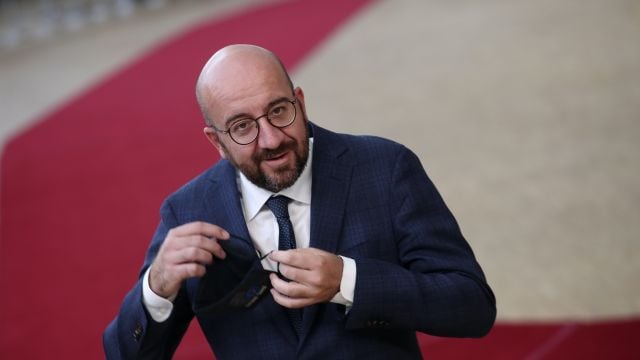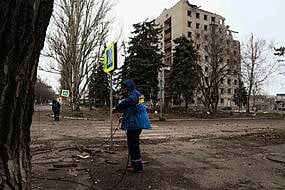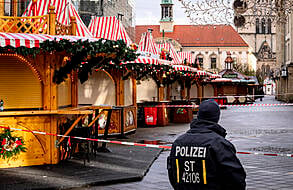It took an emotional dinner speech by European Council president Charles Michel about leaders not failing their union, French President Emmanuel Macron venting his deep frustration, and a new set of budget numbers to send the marathon summit onward.
“There were extremely tense moments. And there will be more that no doubt will still be difficult. But on content, things have moved forward,” said Mr Macron, stressing his partnership with German Chancellor Angela Merkel.
“An extraordinary situation demands extraordinary efforts,” Ms Merkel said as the leaders pushed on with one of the bloc’s longest summits. What was planned as a two-day meeting scheduled to end on Saturday was forced into two extra days by deep ideological differences among the 27 leaders.
“It looks more hopeful than when I thought during the night, ‘It’s over’,” said Dutch prime minister Mark Rutte.
Mr Rutte, defending the cause of a group of five wealthy northern nations — the Netherlands, Austria, Finland, Sweden and Denmark — sought to limit costs and impose strict reform guarantees on any rescue plan for needy nations.
We are not here because we are going to be visitors at each other’s birthday party later. We are here because we do business for our own country. We are all pros
He came under criticism from Mr Macron, Italy and Hungary, whose prime minister Viktor Orban asked why the Dutchman had such “hate” towards him.
Mr Rutte took it in stride, saying: “We are not here because we are going to be visitors at each other’s birthday party later. We are here because we do business for our own country. We are all pros.”
On Sunday night, after three days of fruitless talks and with hope dimming, Mr Michel implored leaders to overcome their fundamental divisions and agree on the budget and recovery fund. Unanimous agreement is required.
Following discussions on Monday, he adjusted his proposals and said he was “convinced that an agreement is possible”.
I am going to send my new proposal to all the leaders. We have worked very hard and this proposal is the fruit of lots of collective work.
I know that the last steps are always the most difficult but I am convinced that an agreement is possible.#EUCO pic.twitter.com/nD0M5QFYKCAdvertisement— Charles Michel (@eucopresident) July 20, 2020
As he braced for a new round of talks, Italian premier Giuseppe Conte said he was “cautiously optimistic” after “tough” confrontations.
“We are offering a response to Europe. From this point of view, there can be no more fooling around,” he said.
The coronavirus has sent the EU into a tailspin, killing around 135,000 people and plunging its economy into an estimated contraction of 8.3% this year.
Spanish prime minister Pedro Sanchez insisted an ambitious plan was required as the health crisis continues to threaten the continent.
“We must give an answer that gives certainty, reassurance, calm, serenity, both to companies, to workers and to all citizens in order to face this pandemic with all the guarantees,” he said.
The bloc’s executive has proposed a 750 billion euro (£677 billion) coronavirus fund, partly based on common borrowing, to be sent as loans and grants to the countries hit hardest by the virus. That comes on top of the seven-year trillion-euro EU budget that leaders had been haggling over for months even before the pandemic.







